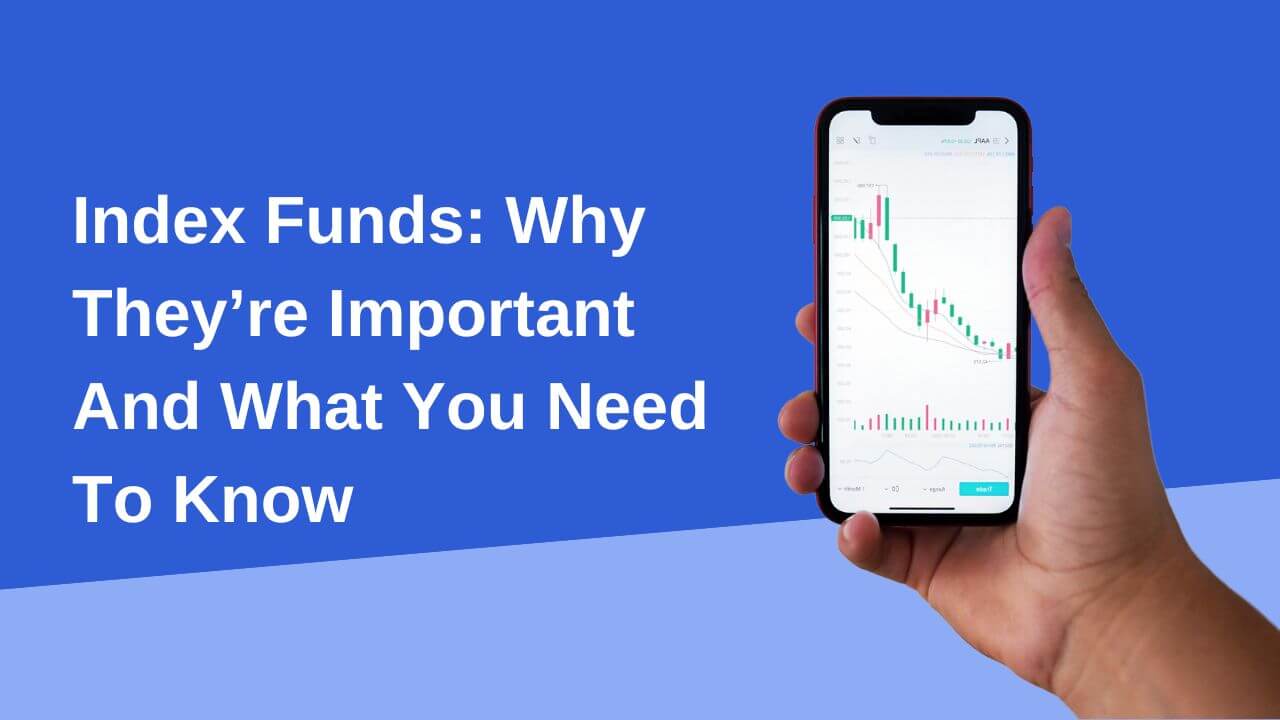Finances Are Confusing
You’ve likely heard the terms “index fund,” “ETF,” and “mutual fund” thrown around when people discuss their portfolios and investing. The constant business jargon can be hard to understand at times, it was for me as an engineer getting my MBA. My professors let me in on a secret and I will pass it on to you; “if everyone knew the jargon, we’d be out of a job.”
Once you understand the basics of financial lingo, everything will start to come into focus. So today, I’ll be talking about one of the tried and true investing mediums, index funds.
What Are Index Funds?
An index fund is a type of mutual fund with a portfolio constructed to match or track the components of a market index, such as the Standard & Poor’s 500 Index (S&P 500). An index mutual fund is said to provide broad market exposure, low operating expenses, and low portfolio turnover.
That’s a lot of jargon.
What this means, is that an index fund is something that you can buy like you would a stock, but it really acts as if you are buying a tiny little bit of a whole bunch of stocks at the same time. This is also great if you want a comprehensive portfolio and don’t have thousands of dollars to buy each stock individually.
The idea is that index funds mimic the financial performance of the entire stock market. The S&P 500 is a portfolio of the leading 500 companies in the US. The ratios of these companies are not equal but are carefully weighted by professionals for optimal performance.
This weighted ratio of index funds is so balanced and efficient that in many cases, it is considered the “market.” Have you ever heard that the market is up? This likely means that the S&P 500 is up; in many circles, S&P performance is synonymous with the financial performance of a country.
There are many different index funds for different investors, with slightly different stocks and weights to try to beat the market. If the portfolio managers do a great job, they should all return about the same amount of money.
How Effective Are Index Funds?
Now you may be wondering how effective index funds are. The answer is slightly complicated, but I will strip it down for you.
Index funds are only as good as the stocks, which compose them. This means it is smart to research index funds before buying any index fund, but it is really easy to find high performers. What many do is simply look at an index fund’s return over the past 5-10 years and compare it to the S&P 500.
Many portfolios can have high fees to actively manage your finances and are overseen by the elite financial experts of Wall Street. I will let you in on a little secret that these managers don’t want you to know. There have been studies done on their performance vs the S&P 500 and other index funds.
These studies consistently find that the S&P 500 and other index funds almost always outperform actively managed portfolios. CNBC reported a recent study from March of 2022, showing that 80% of active fund managers were falling behind the major indexes.
This means that people who were paying a premium for high-end fund management not only had high fees but made less money!
Capital Gains Benefits
We’ve talked a lot about how index funds have fewer fees and good returns, but there is one more piece to keep in mind.
As a general rule, when stocks are sold for profit, capital gains tax will be charged by the government. This means that funds and individuals who buy and sell a lot tend to pay more taxes. If a fund gets charged taxes, they pass those expenses on to those who bought that fund.
The beauty of index funds is that they buy and sell the companies that they hold very rarely (usually less than 10% of what an actively managed fund will do). This means that owning index funds will often not only cut out many management fees but also the passed-on capital gains tax!
What Does This Mean?
There are many ways to manage investments and schools of thought. The empirical evidence of index funds like the S&P 500 makes a strong argument for their use, especially if someone does not have an extremely high level of financial expertise. Remember, nearly 80% of the experts on Wall Street aren’t beating the S&P 500 with their actively managed funds.
Index funds also offer the crucial benefit of diversity, which protects you from weird blips in parts of the market, without forcing you to buy a large number of full stocks. One share of S&P will have the same diversity as the entire portfolio of 500 companies. That is BIG!







